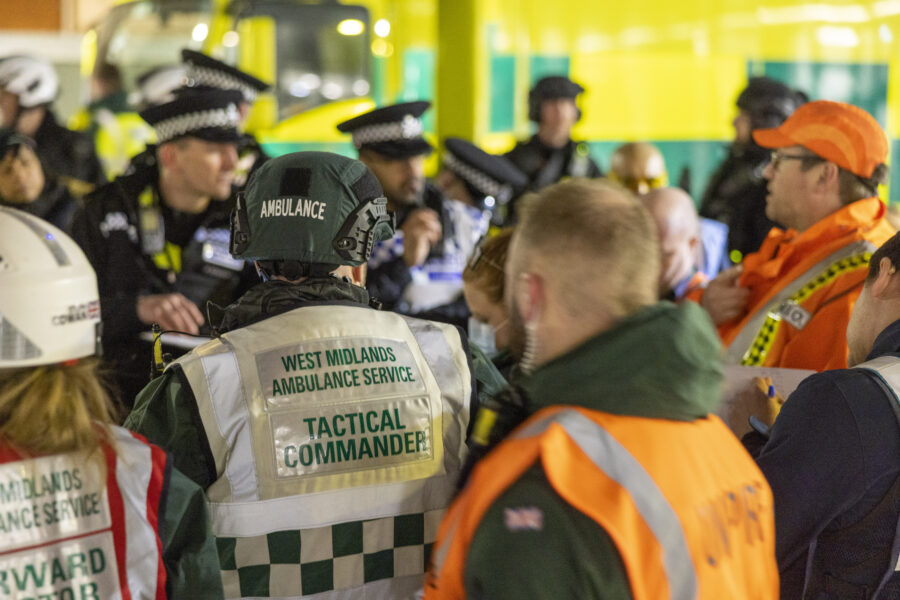
What is a Major Incident?
A major incident is an event or situation with a range of serious consequences, which requires an immediate response from one or more of the three blue light emergency services. It may also include responses from other partners such as local authorities, other parts of the NHS and the utility companies. A major incident is likely to involve serious harm, damage or disruption and pose a risk to human life, such as a terrorist attack, a building collapse, a pandemic or a serious weather event such as flooding or snow
Our Role in a Major Incident
As an ambulance service we form the first part of the NHS response to a major incident, rapidly deploying resources, commanders and specialist teams to provide pre-hospital care to those involved and to save as many lives as possible and working to reduce harm to the wider public and community.
Depending on the situation, when a major incident is declared, the ambulance service will mobilise a large number of pre-determined resources to the scene of the incident to ensure a robust response. Our on call senior leadership team will be activated to oversee and command the incident. The Trust also has the ability to recall staff to duty to further bolster the number of ambulances and call handlers we have to deal with not only the incident but also to enhance our business-as-usual arrangements.
At a major incident we work with our blue light colleagues using the Joint Emergency Services Interoperability Programme (JESIP) principles to deliver a multi-agency response to ensure we’re able to deliver the best care and treatment to any casualties, which minimises disruption to other healthcare services and brings about a speedy return to our normal service.
Our Responsibilities in a Major Incident
As an ambulance service we are the “gatekeeper” to the NHS and as such are responsible for alerting, mobilising and coordinating the NHS response to large-scale or declared major incidents. Our responsibilities include:
- Initiating and maintaining a Command and Control system to provide appropriate support and guidance to all NHS responders and other agencies.
- Coordination of all NHS communications on scene.
- The management of the health, safety and welfare of all NHS responders.
- Providing casualty triage, treatment and transport, including the selection of appropriate receiving hospitals.
- The provision of specialist incident response capabilities, including hazardous area working, decontamination of casualties and at an active shooter incident.
Major Incident Training and Preparedness
Our staff undertake regular mandatory major incident training to ensure they are up-to-date and compliant with the latest operational procedures and major incident plans. The Trust also regularly takes part in major incident training exercises, often with fellow blue light colleagues and local resilience forum partners, to thoroughly test our major incident capabilities and plans. There are two types of exercises;
- Live exercises where staff will respond to a simulated incident such as a train crash or explosion and respond to ‘real’ patients at the scene who are played by volunteers.
- Table top exercises which play out hypothetical scenarios of incidents to test our staff in the strategic management of an incident.
Exercises are a vital part of testing our staff, our response and our plans. The Trust’s Major Incident plans are regularly reviewed and updated to reflect new ways of working identified after an exercise or following lessons identified at incidents locally and nationally.